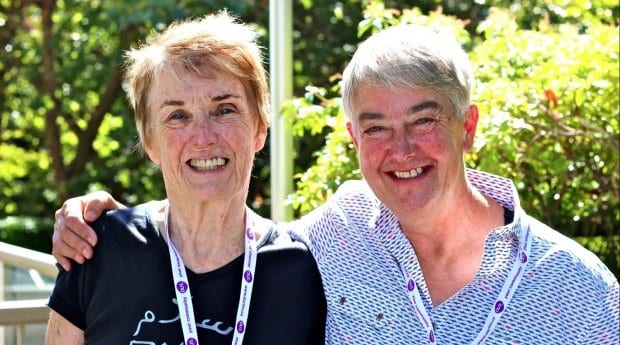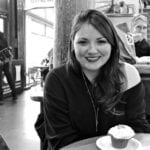In a conference room at the Coast Plaza Hotel on Sept 6, a group of excited lesbians, mainly in their 70s, share their experiences with several queer women under 30.
It’s the third day of the 10th annual BOLD Old(er) Lesbian and Dykes Conference in Vancouver, and these women have come together for an intergenerational dialogue.
“Women are invisible, lesbians are invisible, older people are invisible, and I wasn’t ready for that,” one participant says.
Some of the older women in the workshop express concern about the apparent loss of women-only spaces, lamenting that younger lesbians and queer women don’t seem to think such spaces are important.
One space cited is the Michigan Womyn’s Festival, which, in another workshop, other BOLDFest participants are sharing memories of attending. That workshop’s presenter, Lyn Davis, says women are losing interest in and enthusiasm for the festival and offers ideas on how to encourage support and attendance.
The conversation in the intergenerational workshop debates the possibility of reconciling the reduction of women-only spaces with an expanded social discourse on gender and sexuality that’s meant to be more accessible and inclusive of a variety of identities.
Some of the older women say that their identity as lesbians is extremely important, especially since many of them came out during the women’s movement in the 1960s and ’70s. Some of the younger women seem to relate to this, but to many the word lesbian refers more to a space that they move within rather than a complete identity. The conversation pauses every so often to discuss new terms and how the younger women define the word queer.
Nadine Boulay, one of the younger participants who also facilitated the intergenerational workshop last year, says her favourite part of the workshop is bridging the gap between older women who may not be aware of younger women’s activism. “Having a chance to acknowledge that the work that we’re doing is connected to the work that they’ve done, and being able to make that connection, helps to challenge some of those divisions,” she says.
Despite some differences in their perspectives, participants of all ages agree that both lesbian and queer identities can be synonymous with being a “process junkie” and that both sexualities tend to produce a “processing wonderland.”
Another kind of wonderland is offered a few rooms up, where a private third workshop explores the art of seduction. “Margaret Mann did a wonderful workshop on sex and older women. She did a wonderful job of getting women to talk about very personal issues,” first-time BOLDFest attendee Catherine Carter later tells Xtra.
To mark its 10th anniversary, BOLDFest featured a variety of workshops (including one on writing your own obituary), a reception, a dance, some dragon boating, film screenings, a concert and a retrospective of the festival’s first decade.
BOLDFest founder Pat Hogan says she would like to see the festival’s momentum carry over into year-round activist work and possibly a retreat.
Co-organizer Claire Robson says the highlight for her this year was the woman who came out just two weeks before the festival and publicly shared her story. “In front of 120 people she told her story — how she went to Little Sister’s for the first time, how she was married for 36 years, how her roommate had signed her up for the conference,” Robson says. “She told us that she’s never felt more feminine, more free or more bold.”


 Why you can trust Xtra
Why you can trust Xtra


